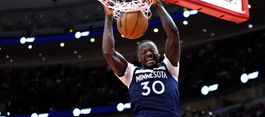In our first two installments of this NBA Draft preview series, we learned that “stars” truly are elite, as only 5% of all drafted players developed into “stars.” We also learned that teams primarily draft these players in the top 10, therefore making top 10 draft picks extremely valuable. Thursday’s NBA Draft provides a new wrinkle not often seen in the past 20 years. Three consensus top 10 prospects (Kristaps Porzingis, Mario Hezonje, and Emmanuel Mudiay) come from non-American colleges. This article will use the performances of similar prospects over the last two decades to help project whether these international players are worth the very high investment that is a top 10 pick.
Overall, players entering the draft from non-American colleges (international players) are much more likely to be “busts” than the average draftee.

International players don’t make it in the NBA for a number of reasons, such as:
- Cultural differences
- Homesickness
- Prohibitive buyouts that prevent the player from playing in the NBA for a number of years after his selection
- Lack of high-level competition
- Faulty scouting from a lack of exposure
Because of these reasons, 60% of international players are drafted in the second round, where the risk to teams is much lower (for context, only 47% of players from American colleges are drafted in the second round of the draft).
Unfortunately for teams, the risks associated with international players are not limited to the second round. The chart below shows that over the past 18 drafts, international players selected in the first round are less likely than the average draftee to be “stars” or starters and are more likely to be busts and role players. This is especially true when compared to draftees from the traditional “Power 6 conferences” – ACC, SEC, Pac 12, Big Ten, Big East, and Big 12.

One other reason to be cautious about drafting any of these three international players in the top 10 is simply the high number of international prospects in the top 10 this season. Over the past 20 drafts (1995-2014), only 17 international players were selected in the top 10. Only two drafts (2002 & 2011) have seen as many as three international prospects selected in the top 10. While 2002 was hit and miss for the three international prospects, 2011 has been lacking so far for the four players selected.
| Year | Player | Pick | Classification |
| 2002 | Yao Ming | #1 | All-Star |
| 2002 | Nikolas Tskitishvili | #5 | Bust |
| 2002 | Nene Hilario | #7 | Starter |
| 2011 | Enes Kanter | #3 | Role player |
| 2011 | Jonas Valanciunas | #5 | Starter |
| 2011 | Jan Vesely | #6 | Role player |
| 2011 | Bismack Biyombo | #7 | Role player |
NBA teams invested heavily in international players in these two years. However, the one-in-eight ratio of “star” to total players in these two years is in line with the ratio of all international players drafted in the top 10 who developed into “stars” (three in 16). After comparing this to the 23% of all players drafted in the top 10 who became stars, it becomes clear that drafting an international player in the top 10 will be an extremely risky move that teams should steer clear of. Teams looking for stars in the top 10 should stick to drafting players from the “Power 6” conferences to maximize their chances.

Brian Dowdy is a correspondent at FantasyPros. To read more from Brian, check out his archive and follow him @BDiddy76.






